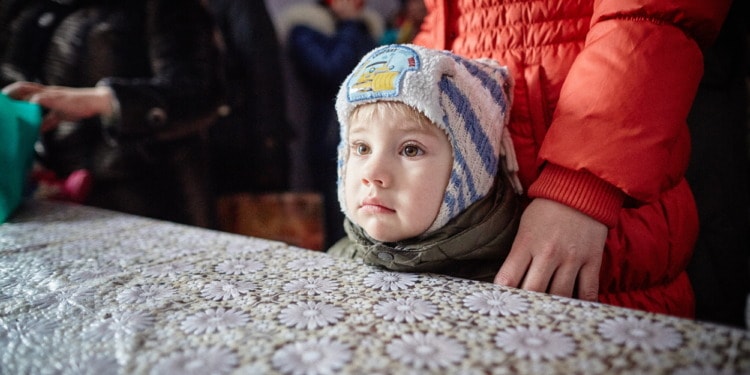October 17 is the International day for the Eradication of Poverty, but according to a UNICEF study released this morning, there are now four million more children in poverty across eastern Europe and Central Asia than there were last year.
Such figures are particularly shocking as they demonstrate the disproportionate burden that children and being forced to bear in the current crises.
Whilst under-18s only make up 25% of the population in the regions looked at in the study, they constitute 40% of the 10.4 million people that have moved below the poverty line since 2021.
This 19% increase in child poverty across the 22 countries analysed comes as a consequence of the Russia-Ukraine war and rising inflation rates.
As Afshan Khan, UNICEF’s regional director for Europe and Central Asia, states, “children all over the region are being swept up in the war’s terrible wake” and, predictably, the children worst affected are those within the war’s epicentre.
Russia was found to have experienced the greatest increase, accounting for almost three-quarters of the total surge recorded, with 2.8 million more children now living in poverty than last year.
Ukraine had the second largest share of half a million and Romania, where there has been an increase of 110,000, is positioned as the third worst afflicted.
The consequences of this surge in child poverty rates are predicted to be expansive.
The ripple effects may result in a sharp increase of infant mortality, as UNICEF predicts an additional 4,500 babies could die before their first birthday. There are also expected to be learning losses, according to the study, that could result in an extra 117,000 young people dropping out of school just this year.
Related Articles: In War, Women and Girls Pay the Highest Price; the Ukraine War Is No Different | Extreme Poverty Is on the Rise for the First Time in Two Decades according to UN
In fact, it may be the case that the poverty these children are being forced into turns into a permanent state in both their lives and their families’ as they are likely to be unable to “climb out” of it.
As the study notes, it is estimated that one in three children who are born and raised in poverty will continue to live in this state as adults, creating a relentless intergenerational cycle of hardship and deprivation facilitated by the insufficient resources, such as healthcare and education, that poor citizens receive.
In attempt to prevent the creation of these intergenerational issues, fight against this rising number of children in poverty, and aid those already suffering, UNICEF has recommended five actions to policy makers:
- Provide universal cash benefits for children.
- Expand social assistance benefits to cover more families with children in need.
- Protect social spending, particularly for the children and families most at risk.
- Support the health, nutrition and social care services for pregnant women, infants, and pre-schoolers.
- Introduce price regulations on basic food items for families.
UNICEF has also partnered with the EU Commission to pilot the EU Child Guarantee initiative. This scheme aims to break the cycle of child poverty by extending access to key services such as free education, healthcare, and school meals to all children.
Such measures are crucial since, as Afshan Khan affirms, “if we don’t support these children and families now, the steep rise in child poverty will almost certainly result in lost lives, lost learning, and lost futures.”
Editor’s Note: The opinions expressed here by the authors are their own, not those of Impakter.com — In the Featured Photo: Child in eastern Ukraine. Featured Photo Credit: UNICEF Ukraine.









